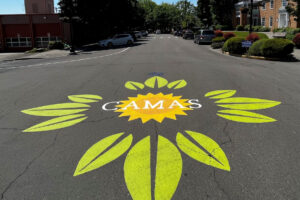Despite strong objections from one council member, the Camas City Council has approved taking the annual 1% property tax and emergency medical services tax levy increases allowed under state law.
During the Council’s regular meeting Monday, Nov. 20, Councilwoman Jennifer Senescu said she “can’t agree with these taxes and these levies.”
“We can’t keep taxing our citizens,” Senescu said Monday, before casting the lone “nay” vote against taking the allowed 1% levy increases that help the City keep pace with rising salaries and increases to employee health benefits.
Camas Finance Director Cathy Huber Nickerson explained to Camas City Council members during a Nov. 6 Council workshop that the 1% increases do not signify a 1% increase to individual tax rates but, rather, impact the overall tax levy amount collected by the City.
Huber Nickerson told the Council Nov. 6, that, in 2024, taking the 1% property tax levy increase would add around $146,000 to the City’s general fund, expand the City’s overall tax levy to $15,081,851 and increase the tax rate from $1.84 to $1.86 per $1,000 assessed property value (APV).



